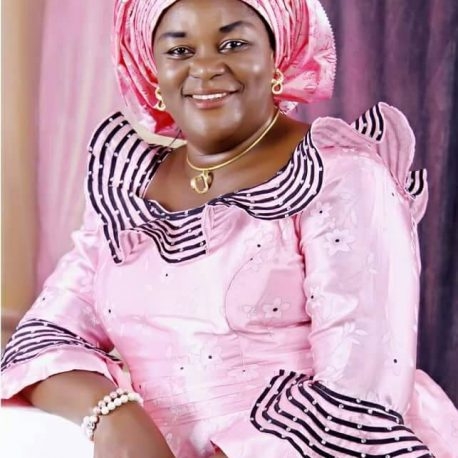‘’Nkwo Orji’’
One could be forgiven to believe that Nda Danny was inspired by the gods. The song Nkwo Orji, accepted by many as the Orji National Anthem, is a soothing balm that invokes a sense of elation in many of us (young & old); especially in the early 70s, as we struggled to recover from the devastation of the civil war. Today the song “Nkwo Orji’’ still resonates with many indigenes of Orji, Uratta, Owerri and environ. For some of us, it is a call to duty, a summon to stand up to our cultural heritage and identity.
As Chimamanda Adichie rightly posited “Art lives in History, and History lives in Art”. Hence one can assert that our music lives in us, and we live in our music. Apart from the cultural nostalgia it brings, Nkwo Orji, the song as well as many others sung by Nda Danny Orji of blessed memory, has also given voice and expression to some of our historical antecedents. Nda Danny sang out our lives, our yearnings and aspirations, albeit inadvertently.
“Nkwo Orji” and “Bia Nwanne” are reminders of who we are, a call for unity and progress. “Eddie Kwansa” is a clarion invitation to Owerri/Igbo elites to assist rebuild Owerri/Alaigbo from the ruins of the Civil War. He sang ‘Uba” in grief and lamentation, following the painful demise of his sister, Uba. In all, Nda Danny sang with uncommon sagacity, artistry and fluidity that not only entertained and endeared him to his listeners, but also stirs up the curiosity to understand the meanings of his songs even when you are not an Owerri man.
Nda Danny may be gone, but his songs remain evergreen in our hearts. May his sonorous soul continue to rest in Peace…Amen.
Now, “Nkwo Orji’’; the Market.
Just by the curve before the road stretched towards Obilubi, lies the Nkwo Orji Market. There were no edifices nor complexes that usually announce the big markets, just rows and rows of open stalls.
Nkwo Orji market sells every 8 days. However, the traders still gather in-between to do the ogwumabiri version. A typical Nkwo Orji Market Day is really a sight to behold, a beehive of activities, a tapestry of colors mingling in an organized commotion of human activities. Open stalls with varieties of goods on display; yams, garri, fresh palm oil, vegetables, fish sellers and the butchers behind their tables.
Standing distinctively a bit further was the open hut where Nde Oha gathered. Most often than not, about eight or nine of them can be seen looking dignified in their okpu nwagoro and Jorge wrappers. Placed on top a carved wooden stool in their midst was a jar of palm wine, some kola nuts in a wooden saucer. The leader of Nde Oha picks up a kola nut, and after filling his palm wine calabash, is set for the first order of business. “Chineke kere eligwe n’ala… .He began.
On this particular day, Nkwo Orji is held on a Saturday. Hence I accompanied my mother to assist her to convey her merchandise (mainly fresh vegetables) to the market. After selling out our wares my mother left to buy some food items for the house, while I sat on my OP savouring the scenery, the thrills and the frills of Nkwo Orji Market; which was not only picturesque but also a sight to behold. My mother turned in from a corner of the market carrying a plastic basket and a sack, I quickly rushed to collect the sack from her. She sat down on the wooden bench. You must be hungry Nnah, she said as she brought out a wrap of Akarajapu (cassava cake) with some pieces of coconut. I collected it from her and started eating without much preamble. The cassava cake tasted very good with coconut and the wrap was empty before I knew it.
My mother came back with a few more items and I knew it was time to go. She packed most of the items in the plastic basket and the rest in the sack. She placed the sack effortlessly on my head, and picked up the plastic basket. Mama, wait!! I said as I squatted down to pick up a piece of stone which I threw in the direction of some birds that had gathered around some discarded pieces and sinews from the butcher’s table.
Noticeably, vultures were among the birds. But I saw injustice when the vultures did not allow the smaller birds to perch nor feast on the meat leftovers. I threw the stone to disperse the vultures, but the smaller birds, not knowing my intention, also flew away. “What an unfair world… poor hapless creatures”, I murmured to myself. I ran to catch up with my mother, and we continued our journey through Uzo Ngwu, Uzo Nwafor, Uhu Umuimeka and not long afterwards, we were at home.
My account so far was Nkwo Orji in the eyes of a ten year old in the mid 70s. This was my experience of Nkwo Orji as an adolescent, an experience so remarkable that it has remained indelible for almost fifty years. It is also noteworthy that Nkwo Orji has survived urban sprawl since the creation of Imo and Anambra States in 1976. This means that things have remained relatively peaceful around the market until recently.
Fast forward to 2024, the public out-cry over the activities of the new development around Nkwo Orji market attained a new crescendo. Individuals and groups could no longer keep quiet.This came as a fall out of two major interventions. One by the Owerri Local Government Council in 1996 and the second by the Imo state government in 2018.
The intentions behind these two interventions then and even now are not very clear. However, what could have stood out as gains from both interventions were completely eroded by the introduction of Market Developers by the Imo State Ministry of Trade and Commerce in 2022. The first casualties were Orji women, mainly petty traders who lost their stalls (Odu Ahia in other words). Dispossessed of their shops, they now opted to display their wares by the road side, at the risk of potential road mishap.
It is also on record that the Developers (the new land Lords of Nkwo Orji) and new shop owners have on various occasions called in the police on Orji women which led to the illegal and unconstitutional arrest of their executives; with the flimsy excuse that their members constituted nuisance to the new shop owners.
Displaced and deprived of their means of livelihood, some Orji women have now been made Internally Displaced Persons (IDPs) in their own village. These are our wives, our mothers and sisters. There are also cases of individuals, families and kindreds who hitherto owned and operated lock-up shops also losing their shops, as the Developers marched on with impunity.
If the Developers continue on this trajectory, who knows the next casualties? Maybe Ndi Oha Hall, one of the surviving symbols of the Igboman’s egalitarianism could be touched. “How long shall they kill our prophets while we stand beside and look” Bob Marley of blessed memory lamented.
Nkwo Orji may not be a UNESCO World Heritage Site, but Nkwo Orji is an embodiment of our historical, cultural, social and economic expressions. It is more than just a market, It is our collective heritage. I may not have any problems with modernization and optimal utilization of the market but that should not be done at the expense of the legitimate aspirations and collective interests of our people by brazenly denigrating our cultural heritage sites. Sometimes, I flinch to think about what our children will write about us in the next fifty years. What shall they say about this generation?… Well, your guess is as good as mine.
This write up is not a platform for any blame game. However, I hope I can appeal to the conscience of all concerned. I am speaking to Orji men and women of goodwill, with the hope that we can rekindle the camaraderie of “Bia Nwanne”, and “Izu Kanma n’nneji”, on one hand, while upholding the maxims of “Umunna ji ike” and “Onye aghala nmanne ya’’ on the other. These were the same ethos that led our founding fathers to overcome daunting challenges against all odds in the past. I hope we can rescue and restore the glory of Nkwo Orji market from the onslaught of unbridled wheeling-dealing developers and their cohorts.
If we save Nkwo Orji Market, we would have restored some aspects of our cultural heritage and identity; we would have restored the dignity of some Orji women who have suffered serial victimization and humiliation in the hands of the emergent owners of Nkwo Orji.
If we do these, then, we can stand up with pride and in dignified concurrence as patriots to grace the floor when the song ‘’Nkwo Orji” plays any time… because, Nkwo Orji the Song and Nkwo Orji the Market are one and the same.
Ndewo nu….and thank you for your time.
Long Live Orji Autonomous Community,
Peter Chibundu wrote from
Umuimeka Orji.


